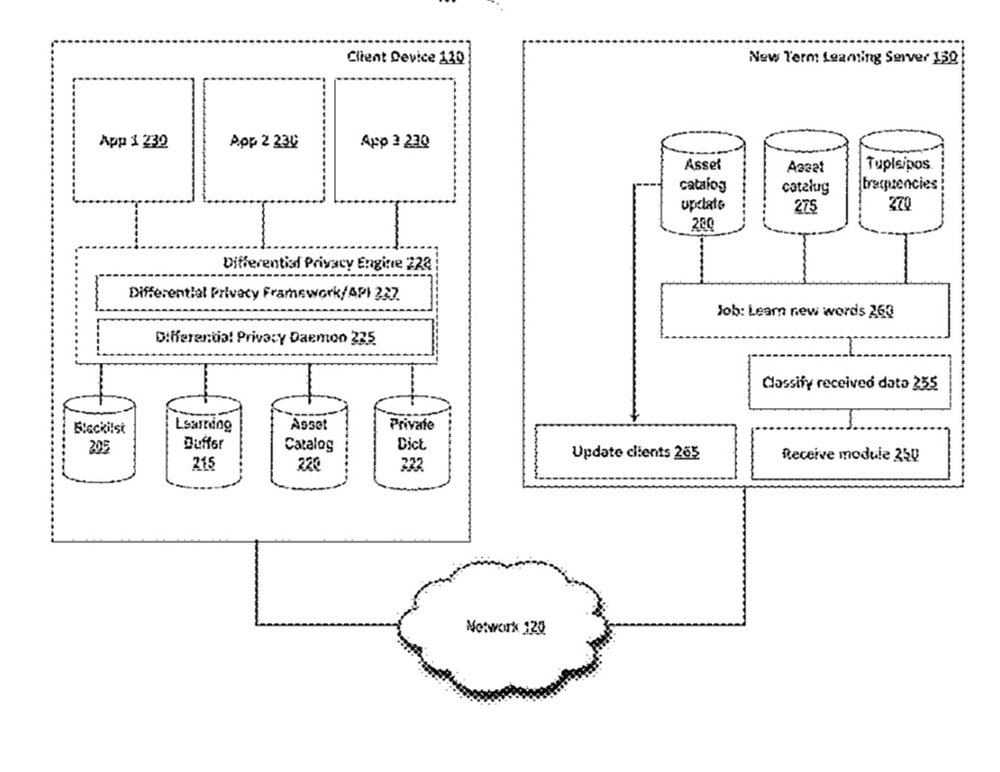Apple wants to increase your vocabulary — or at least that of your macOS or iOS device. The tech giant has applied for a patent (number 9,645,998) for “learning new words.”
In the patent filing, Apple notes that new words generated on a client device, such as words that are used within documents on a client device — which would be macOS and iOS devices — and aren’t transmitted to a server, can’t be learned by the server because the words are localized to the client device. Further, if the client device utilizes an end-to-end encrypted messaging service, such as iMessage, then a server can’t learn the words contained in the user message at all and thus a server can’t update a user client dictionary using crowdsourced data.

Apple’s patent filing involves systems and methods are disclosed for a server learning new words generated by user client devices in a crowdsourced manner while maintaining local differential privacy of client devices. A client device can determine that a word typed on the client device is a new word that is not contained in a dictionary or asset catalog on the client device.
New words can be grouped in classifications such as entertainment, health, finance, etc. A differential privacy system on the client device can comprise a privacy budget for each classification of new words. If there is privacy budget available for the classification, then one or more new terms in a classification can be sent to new term learning server, and the privacy budget for the classification reduced. The “privacy budget” can be periodically replenished.
Of course, Apple files for — and is granted — lots of patents by the U.S. Patent & Trademark Office. Many are for inventions that never see the light of day. However, you never can tell which ones will materialize in a real product.
